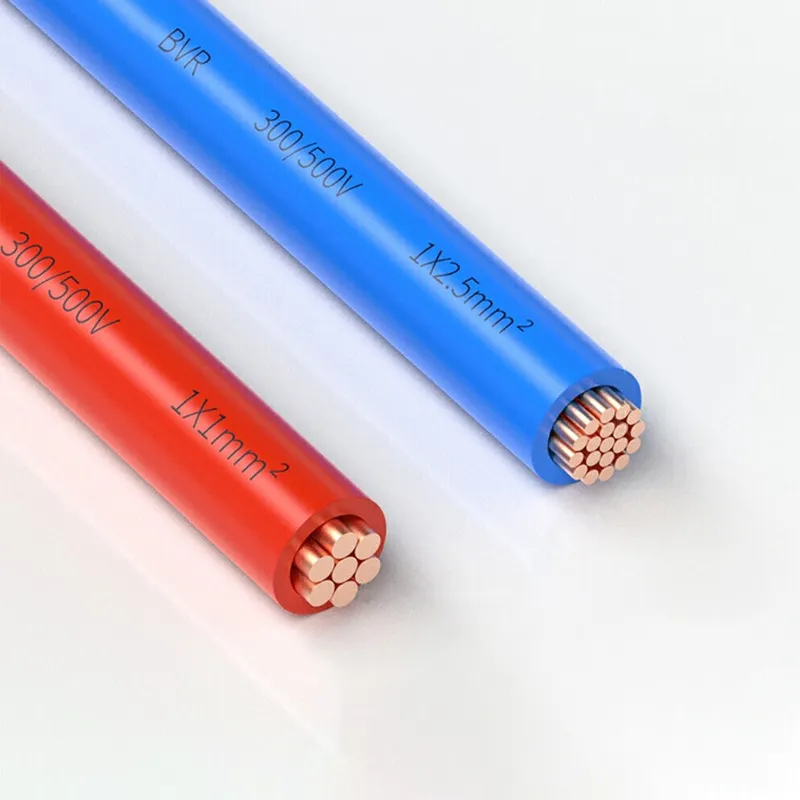
sy control cable product
Understanding SY Control Cables A Comprehensive Overview
In the world of electrical engineering and machinery, the choice of cables can significantly influence system efficiency and safety. One essential type of cable utilized in various applications is the SY control cable. This article delves into the characteristics, applications, and advantages of SY control cables, shedding light on their importance in modern electrical installations.
What is SY Control Cable?
SY control cables are flexible multi-core cables primarily designed for connections in control circuits. The SY denotes specific characteristics of the cable S for shielding, and Y indicating that it is a flexible type of cable. These cables consist of multiple copper conductors that are typically stranded for flexibility, insulated with a thermoplastic material, and shielded with an additional layer of either foil or braided wire. This shielding allows the cable to resist electromagnetic interference, making it ideal for sensitive applications where signal integrity is paramount.
Construction of SY Control Cables
The basic construction of SY control cables includes several critical components
1. Conductors The core of SY cables consists of finely stranded copper wires that ensure high flexibility and conductivity. The size of these conductors can vary depending on the application requirements.
2. Insulation Each conductor is insulated with PVC or other suitable material, providing both electrical insulation and protection from environmental factors.
3. Inner Sheath An inner sheath encases the insulated conductors, offering additional physical protection.
4. Shielding The metallic shielding layer protects against interference from external electromagnetic fields, ensuring that the signals transmitted through the cable remain clear and unaltered.
5. Outer Sheath The outer sheath is typically made of PVC or rubber, which provides further protection from mechanical stresses, chemicals, and moisture.
Applications of SY Control Cables
SY control cables find extensive usage across various sectors due to their versatility and reliability
. Some common applications include1. Industrial Automation SY cables are often used in control panels, PLC systems, and in connecting sensors and actuators in automated processes.
sy control cable product

2. Machinery Control These cables are crucial in controlling the operation of machinery, ensuring that signals are reliably transmitted between control components.
3. HVAC Systems In heating, ventilation, and air conditioning systems, SY control cables facilitate communication between system controllers and operational units.
4. Transport Systems They are also widely utilized in transport systems, including escalators and elevators, where precise control signals are necessary for safe operation.
5. Telecommunications SY cables can be used in telecommunications installations where shielding against interference is crucial for maintaining signal integrity.
Advantages of SY Control Cables
The choice of SY control cables comes with several benefits
1. Flexibility The design of stranded conductors offers excellent flexibility, making these cables easier to install and maneuver in tight spaces.
2. EMI Protection With effective shielding, SY cables significantly reduce the risk of electromagnetic interference, enhancing the reliability of control signals.
3. Durability The robust outer sheath protects against mechanical damage and environmental factors, ensuring the longevity of the cable.
4. Versatility SY control cables can be employed in a diverse range of applications across various industries, making them a favored choice among engineers.
5. Safety The use of high-quality materials in construction ensures that SY control cables meet safety standards, reducing the risk of failures and hazards.
Conclusion
In summary, SY control cables play a vital role in ensuring the efficient operation of electrical and control systems across industries. With their robust construction, versatility, and outstanding electromagnetic interference resistance, they are indispensable for applications requiring reliable signal transmission. As technology continues to evolve, the demand for such dependable components only increases, affirming the significance of SY control cables in ensuring harmonious operation in modern automation and control environments.
-
Reliable LIYCY Cable Solutions for Low and Medium Voltage ApplicationsNewsJul.14,2025
-
Premium Overhead Electrical Wire Solutions for Low and Medium Voltage ApplicationsNewsJul.14,2025
-
Innovative XLPE Electrical Cable Solutions for Modern Low and Medium Voltage NetworksNewsJul.14,2025
-
High-Quality Ethylene Propylene Rubber Cable – Durable EPDM Cable & 1.5 mm 3 Core OptionsNewsJul.14,2025
-
Exploring the Versatility of H1Z2Z2-K 1X4mm2 Cables in Modern ApplicationsNewsJul.14,2025
-
Uses of Construction WiresNewsJul.14,2025
-
Types of Neoprene CableNewsJul.14,2025














